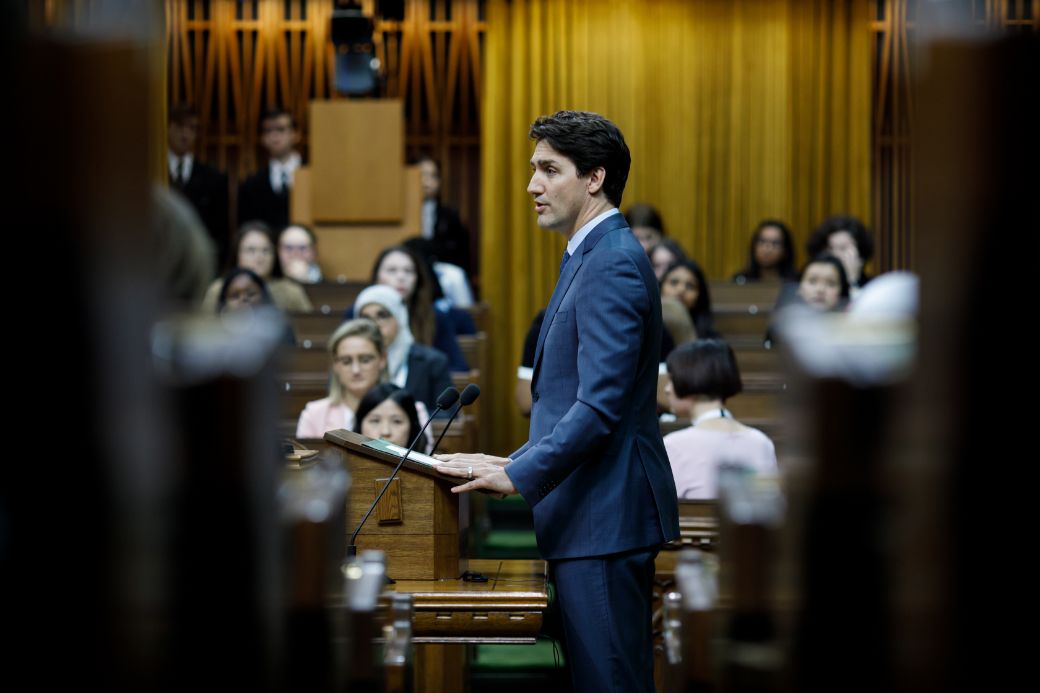Justin Trudeau returns to Parliament as head of a minority government, missing the 13 voting members needed on the government side to secure passage of spending measures and legislation.
The Bloc Québécois will prove to be a reliable voting partner, since it has the least to gain (and most to lose) of any of the parties from an election held before the end of a four-year parliamentary term.
Depending on the issue, the Liberals can also rely on voting support from the Conservatives or the NDP.
The prime minister plans to meet with other party leaders one-on-one in the week of November 11.
Trudeau has announced his first priorities are a tax cut and seeing the Trans Mountain pipeline expansion (TMX) — from Edmonton to Burnaby — through to completion.
Conservative Leader Andrew Scheer campaigned championing his own tax-cut plan, and opposition from the Western-based Conservatives to TMX would be hard to explain.
Conservatives will be reluctant to vote alongside Trudeau, but on issues important to business groups a Liberal-Conservative voting partnership looks inevitable.
With such safe voting support at hand, the Liberal party can govern as if it has a majority, which is not what the NDP has in mind.
Reduced in party standings in the House of Commons, the NDP and its supporters would like to see leader Jagmeet Singh play a leading role in Parliament. Despite its fourth-party status, the NDP can supply the votes Trudeau needs to pass progressive legislation, starting with a budget focused on expanding program spending, not on reducing tax revenues — that way lies the neoliberal road to smaller government.
Singh wants the Liberals to introduce a national pharmacare plan. An important part of European health care, prescription drug coverage is a big missing element in Canadian medicare, along with dental care.
The NDP want the Liberals to respond now to a court decision calling on the government to pay significant financial compensation to Indigenous peoples for the trauma caused by removing children from their families and placing them in residential schools.
The minority Liberals now face a provincial opposition “gang of six” right-wing governments in Alberta, Saskatchewan, Manitoba, Ontario, Quebec and New Brunswick, poised to create problems on carbon taxation, environmental protection, transfer payments, and immigration policies.
Making federal-provincial relations work smoothly is a major challenge for any Canadian prime minister. The task is not going to be easier with the official Opposition Conservatives so closely aligned with the five anglophone Conservative premiers.
Trudeau has his work to do in protecting official language minorities. French official language rights are under attack by the government of New Brunswick, the only officially bilingual province. The Ford government in Ontario has cut back on support for its French-language minority.
Awareness of the fragility of the planet accelerated through the 40 days of election campaigning. Trudeau acknowledged as much, meeting 16-year-old Swedish climate activist Greta Thunberg, and joining with her and a reported 500,000 others on September 27 in Montreal for the largest demonstration in the history of Quebec.
The Trudeau government cannot expect the Conservative Opposition to ignore its own weakness on curbing climate change. It can be sure the three smaller progressive parties in Parliament will noisily demand much more of the government on the issue.
In parliamentary committees, the Trudeau government will be outnumbered by the opposition parties, which opens the door for climate activists from outside Parliament to link with the Bloc and the NDP for space to make themselves heard on Parliament Hill and build on the wider attention generated for their concerns in the 2019 election.
How the Trudeau government decides to treat the climate emergency will be what to watch for in the new Parliament. It will be the major test for the leadership of the prime minister and his cabinet — and will determine how the Liberal government does in its next encounter with Canadian voters.
Duncan Cameron is president emeritus of rabble.ca and writes a weekly column on politics and current affairs.
Image: Adam Scotti/PMO



